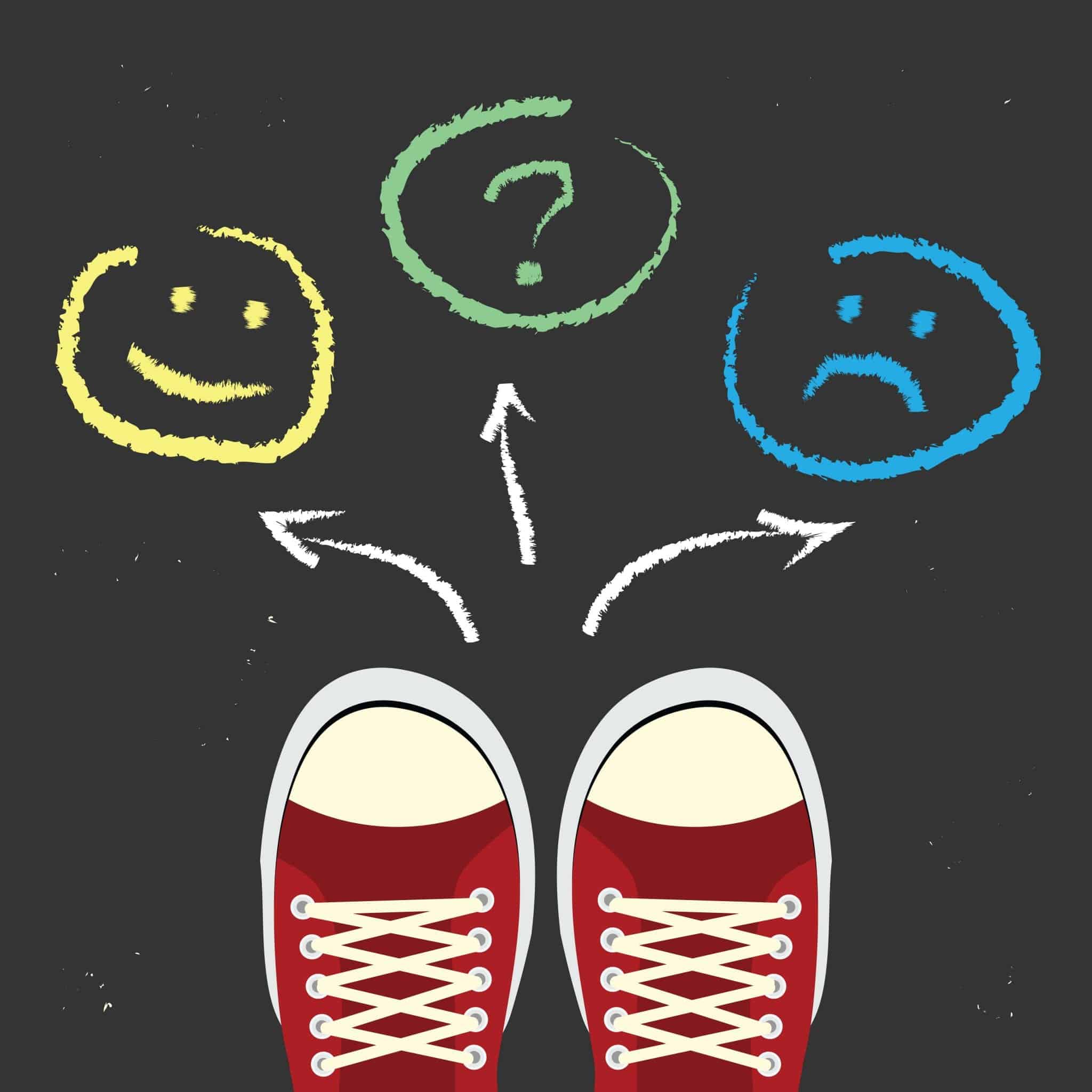
We are faced with hundreds of stimulants each day that provoke an emotion of some kind. While we are practicing social distancing and for most of us, remaining in a Shelter in Place environment, this may be in the thousands. It is how we handle these stimuli that determine the outcome of the situation and the impact that it has on our mental health. Studies have shown that children and teens are more vulnerable to the emotional impact of stressful situations such as this than adults are. That’s why emotional regulation is necessary!
Emotional regulation is the ability to absorb these stimuli and process them accordingly and appropriately. Let’s look at a toddler who is just learning to talk, walk, and feed herself. The tantrum that erupts from frustration and aggravation is impressive, to say the least. How can one small body produce so much energy to jump, yell, scream, and hit anything insight over what most adults would consider a “little” thing!
While the emotional outburst of a toddler may be “cute” for onlookers and horrifying for parents, this is how these little people learn to process their environment and regulate their emotions. As they grow, their emotions and ability to control them grow with them to the point that by the time they become teenagers, it is expected that they have a pretty good handle on their emotions. You would certainly not expect to see a teenager having a full-blown temper tantrum.
Unfortunately though, as hormones rage and the pressures of life creep in, many parents begin to see those tantrums and lack of emotional regulation resurface. By the very nature of transitioning from adolescence to adult, many teens find themselves unable to process and manage all of the stresses and pressures that they are now faced with daily resulting in outbursts and emotional highs and lows.
Self-regulation becomes a constant struggle for any teen let alone one who experiences mental health issues. For teens who struggle with depression, anxiety, dissociative disorders, and other mental health challenges, mood swings are more than simply a lack of regulation. They are uncontrolled, frequent, and sometimes violent. A teen may be completely unaware of their lack of control and therefore, have no way of regulating themselves and their behavior. If this accurately describes your teen, it is time to reach out to their pediatrician who can conduct a thorough evaluation and make recommendations as to the next steps.
If the physician believes that your teen requires additional support for their mental health issues, they will refer them to a facility such as Beachside Treatment Center where the trained professionals will evaluate them, provide a diagnosis and offer guidance through a treatment plan designed specifically for them.
However, even if your teen has not been diagnosed with a mental illness or showing symptoms of such, we are living in very trying times. Teens have been ripped away from sports, friends, activities and may be struggling with the many emotions that have been thrown at them including loneliness and isolation. They may be angry at their current situation, frustrated that their lacrosse season has been canceled, sad they cannot do a college tour, and fearful of the virus itself. During a time when tensions are undeniably high, it may be more difficult for any teen, regardless of their previous mental condition, to properly regulate their emotions.
There are 10 skills that even as adults we should have in our emotional tool kit according to Alice Boyes, Ph.D., author of The Healthy Mind Toolkit including:
- Identifying which specific emotions you’re feeling.
- Identifying which specific emotions someone else is feeling.
- The ability to start and persist in pursuing goals even when you feel anxious.
- The ability to tolerate awkwardness.
- The ability to have intimate conversations rather than stonewall, avoid, or flee.
- The ability not to crumble when someone is pressuring you.
- The ability to soothe your own emotions.
- The ability to soothe other people’s emotions.
- The ability to not go over the top with positive emotion.
- The ability to delay gratification.
While adults and teens should have these skills, emotional maturity and overall mental health will play a role in how each person copes with the current global situation.
Tips to encourage emotional regulation during the COVID pandemic
- Openly discuss your teens’ feelings and emotions about the current situation. Allow them to speak freely, without fear of judgment or of being shut down. There is no right or wrong to feeling disgust, frustration, and unhappiness, and teens should understand that there is no limit to the amount of time that you will dedicate to listening to them about their feelings. The first step to understanding their emotions and controlling them is to know that it is ok to express them.
- Develop your own method of regulating your emotions and share this with your teen. Let them see you be frustrated, upset, and angry but demonstrate the proper way of expressing these feelings. Explain the various strategies that you are using to regulate your emotions.
- Create a sense of belonging by developing and implementing routines and rituals. For your teen to fully commit to these, especially if the routines are new to the house or family, encourage your teen to participate in identifying those things that need to be put in place and developing the habits. Rituals keep teens centered especially in uncertain times providing them with the ability to cope with trauma, loss, and grief. When we believe that we are a part of something bigger than ourselves, we feel encouraged and comforted.
- Crying is a form of emotional regulation. Tears are not a sign of weakness or a lack of managing their emotions. Crying actually is a great tool for releasing tension and stress. Unfortunately, many boys have been told to suppress their emotions while girls are encouraged to let the tears flow. Teenage boys and girls have the same rights to feel the way they do and to express them equally.
For those teens who have a diagnosed mental illness, they would normally be traveling to visit their therapist or psychologist regularly, helping them to maintain and regulate their emotions and to process their feelings about the coronavirus in a positive way. Sadly, because of the situation, this is impossible for most people. So instead we must be creative in developing strategies to manage our own and our children’s emotional state during this time.
Strategies for emotional regulation while practicing social distancing
- Take care of your body. Emotional regulation is a holistic approach to improving mental wellness that includes physical as well as mental well-being. During times of stress such as the current pandemic, it is important to remain physically active, exercising regularly, getting the proper amount of rest, and consuming well-balanced meals. Stress takes a toll as it is on the body and the added stress of social distancing and uncertainty of the future places additional strain. A strong body supports a strong mind.
- Take breaks. It is important to take breaks from social media, watching and reading the news about the pandemic. The fact of the matter is, the situation is difficult, challenging, and confusing. The more often that you watch the news, seeing the events unfold and the numbers rise, the greater emotional strain that it adds. If your teen is glued to the television, pull them away and encourage them to participate in a family activity or in something that they enjoy.
- Human connections. Connecting with others is critical to emotional health and well-being all of the time but most importantly while practicing social distancing. We all need to know that although we are ALL IN THIS together, we truly are not alone in it. Everyone is facing the same challenges and more than likely, experiencing the same emotions and fears. Connecting with friends and family members through video conferencing and phone calls helps teens to remain connected with their emotions and to see how others cope with their own.
- Mindfulness. Meditation and other relaxation techniques help to relieve stress and strain of the situation and allow teens to properly channel their feelings and emotions. There are many useful techniques including mindfulness, yoga, massage, reflexology, and breathing exercises to help understand and manage the emotions that are erupting inside vulnerable teens.
- Self-talk. Although you may sound like Elmo or Dwayne “The Rock” Johnson, speaking to yourself in the third person has proven to be very helpful in self-regulation of emotions. By using third-person self-talk, it is as if you are seeing the situation and your emotions from someone else’s perspective. It puts a little distance between you and your emotions, allowing you to evaluate them logically and with a clear mind. Although it may seem odd to speak to yourself this way, it is really no different than first-person talk. For example, “Why am I so angry about having to stay at home?” Instead, you would ask the question, “Why is Tom so angry about having to stay at home?” This can be a great way for teens to get a handle on their emotions as well.

Like adults, not all teens handle stress and challenges in the same way and everyone matures emotionally at a different speed. Be sure to monitor your teen’s behavior and note any drastic changes in their mental and emotional state. If you notice that your teen is displaying signs and symptoms of mental illness or that they are having difficulty coping, reach out to their pediatrician for an evaluation.
You can also reach out to the trained professionals at Beachside Treatment Center for additional guidance and resources to help your teen develop their coping skills and to process their emotions. We will all get through this together!




